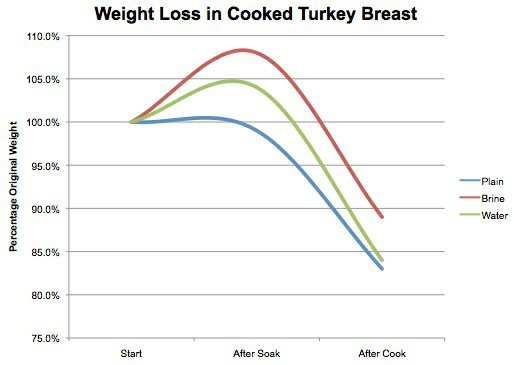I'm not a briner either. However, i make a flavor rich broth from the neck, and innards, along with salt, onion, and aromatic herbs and spices. After it has cooled, I inject it into the bird, all over. Rather than dilute the turkey flavor, it strengthens it. Roasting to the correct temperature gives me exceptionally juicy and tender meat, both white and dark. The skin is crispy and flavorful as I rub bacon fat all over the dried skin, then season the skin, no basting, tenting with foil, or cheesecloth required.
I believe that people overthink turkeys. I don't use cooking bags, or roast the bird on its butt, or breast-side down. I just season it properly, and cook it to the correct thigh/body joint temp of 155 F. let it rest untouched for 30 minutes, then carve, put it on a platter, and serve it t people who tell me that it's the best turkey they have had.
Turkey skin does the same thing for the bird that your skin does for you. It keeps the outside things outside, and the inside things inside. Basting does not do anything except cool the oven,which makes it take longer to roast the bird. I know there are many who will disagree with me. But none who have eaten my charcoal smoked, or oven roasted turkeys disagree.
Seeeeya; Chief Longwind of the North


